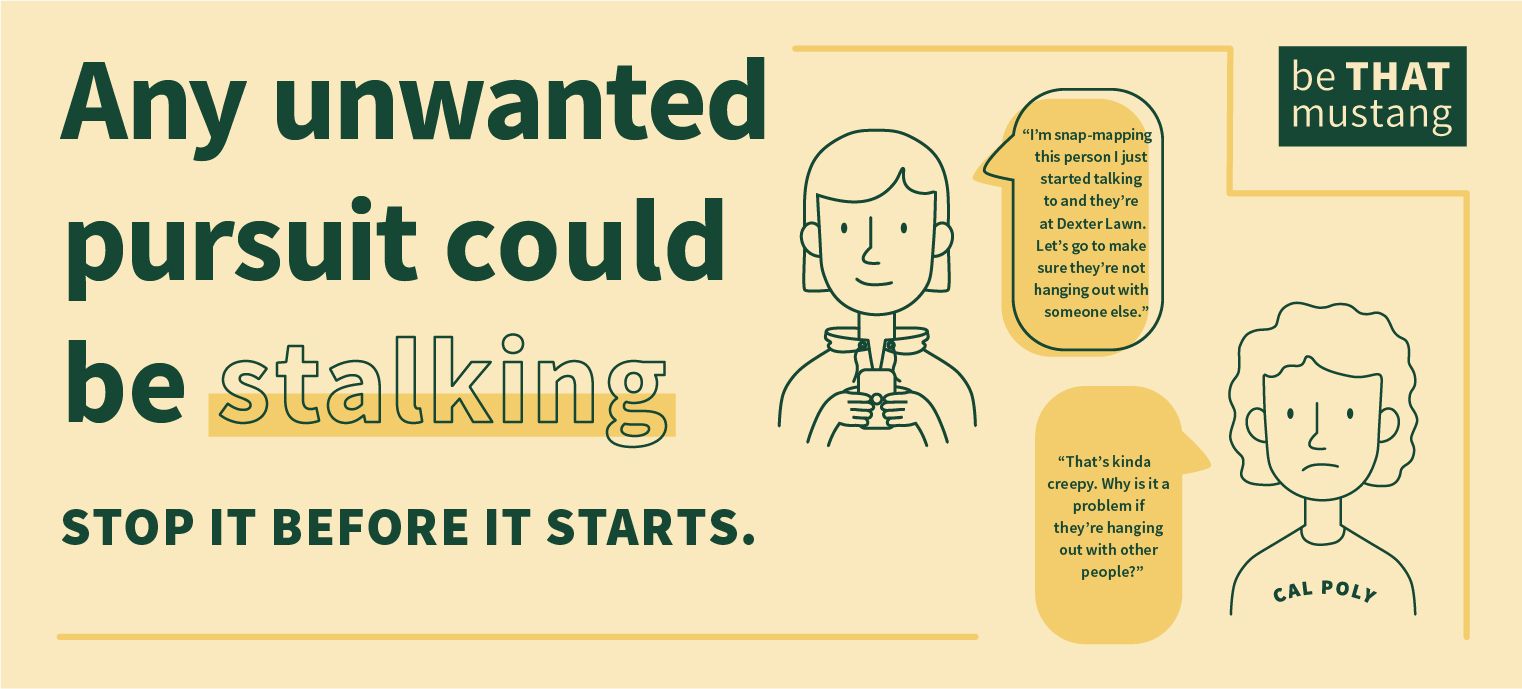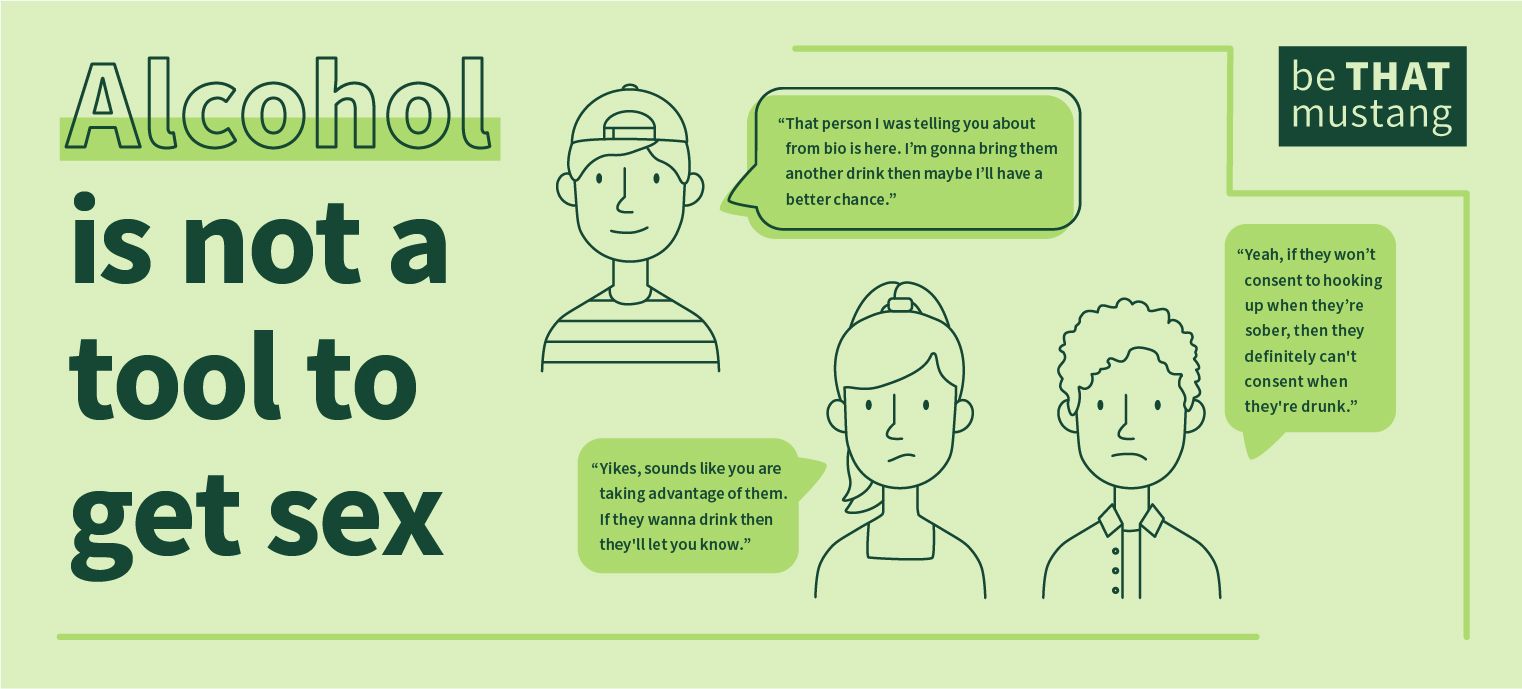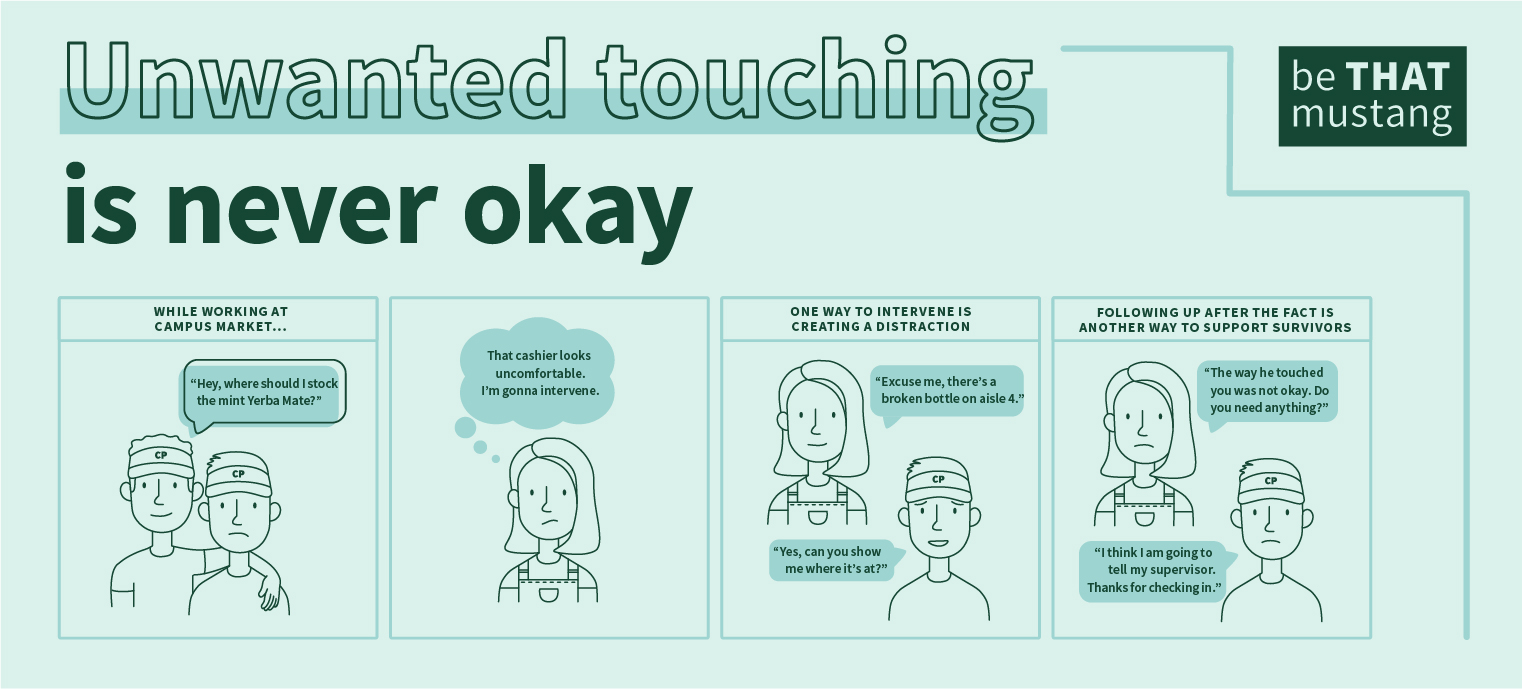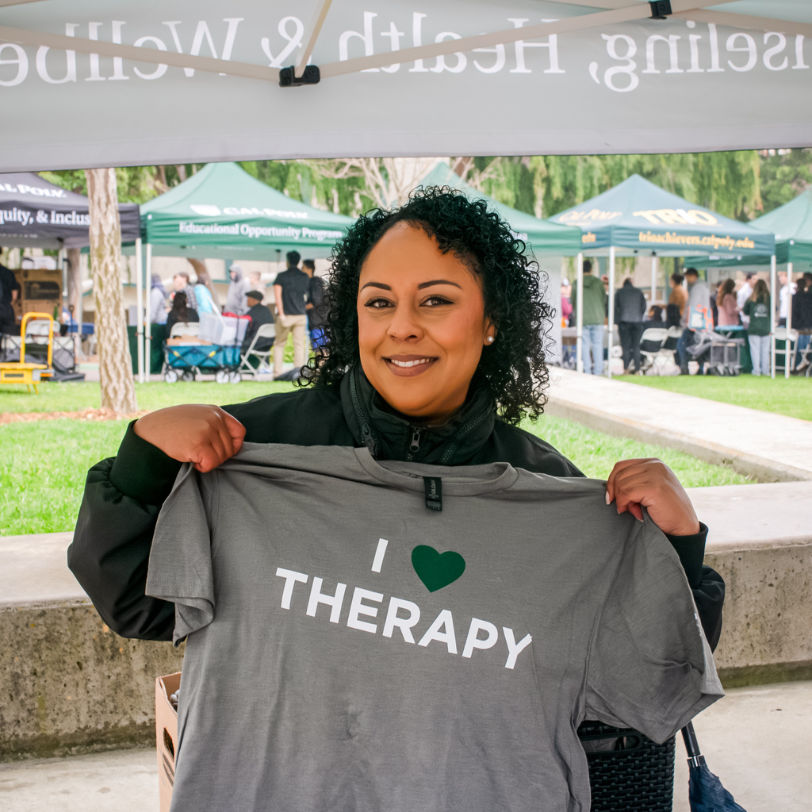Bystander Intervention

Preventing gender- & power-based violence is everyone's responsibility.
We hope that through education and awareness, students can begin to recognize problematic behaviors/situations and develop the skills needed to intervene long before violence ever occurs. Together, we can create a safer and more comfortable campus for all students, faculty and staff.
From Tulane University:
"The behaviors that make up sexual violence exist on a spectrum. While some behaviors – such as sexist jokes, inappropriate sexual comments, innuendos, catcalling, or vulgar gestures – aren’t illegal, this does not make them any less threatening or harmful to the person experiencing them... All of us must embrace our voices to demonstrate that these behaviors will not be tolerated."
This is an important reminder to all of us - we must begin intervening when we notice the foundations for a violent culture, so we never get to the place where someone is being harmed at all.
Being an Active Bystander
Some simple steps to becoming an active bystander:
- Notice the situation: Be aware of your surroundings.
- Interpret it as a problem: Do I recognize that someone needs help? Do they look uncomfortable?
- Feel responsible to act: See yourself as being part of the solution to help.
- Know what to do: Educate yourself on what to do.
- Intervene safely: Take action but be sure to keep yourself safe.
Remember - being an active bystander starts sooner than when someone is in immediate danger. We also need bystanders to intervene when sexist, racist, homophobic, transphobic, ableist, etc. comments are made - these attitudes & beliefs, if left unchecked, lay the foundation for a culture of violence. If we intervene at the root of the problem, we can prevent further forms of violence from ever happening in the first place.
How to Intervene Safely:
- Tell someone! Being with others is a good idea when a situation looks dangerous.
- Ask the person directly if they are OK. This could be an opportunity for them to get out of the situation.
- Ask the person if they want to leave and make sure that they get home safely.
Acknowledge Your Privilege:
- If you have privileged identities, use those to your advantage, and to the advantage of the community around you. For instance, if you are a white individual, it is your responsibility to be an active bystander when you hear a racist comment. Stand up for your community and set the norm for the culture.
- If you have marginalized identities, make sure you are safe first. For example, if you identify as trans, you are the only one who can determine if it is safe to speak up against a transphobic comment. Ideally, those with privilege in this situation (i.e. a cis individual) would step in and say something. This is why it takes our entire community to shift the culture! But remember, your safety is the #1 priority.
Bystander Intervention Strategies
“I” statements
Three parts: 1. State your feelings, 2. Name the behavior, 3. State how you want the person to respond. This focuses on your feelings rather than criticizing the other person.
Example: “I feel _______when you _______. Please don’t do that anymore.”
Silent Stare
Remember, you don’t have to speak to communicate, sometimes a disapproving look can be far more powerful than words.
Humor
If you are worried about ruining the “mood,” of a situation, this could be the way to go. By making an off-topic joke or comment, you could divert a perpetrator’s attention away from the person they are making uncomfortable.
Group Intervention
There's safety and power in numbers. This is best used with someone who has a clear pattern of inappropriate behavior where many examples can be presented as evidence of their problem.
Distraction
Snaps someone out of their “sexist comfort zone.”
Example: Ask a man harassing a woman on the street for directions or the time.
--
*With all of these examples, it is always best to check in with the victim/survivor of the behavior afterward, to make sure they are okay and have access to resources if they'd like them.*
Be That Mustang
Our bystander intervention campaign, Be That Mustang, calls upon all of us within the Cal Poly community to stand up and say something. Take a peek at our campaigns below!







